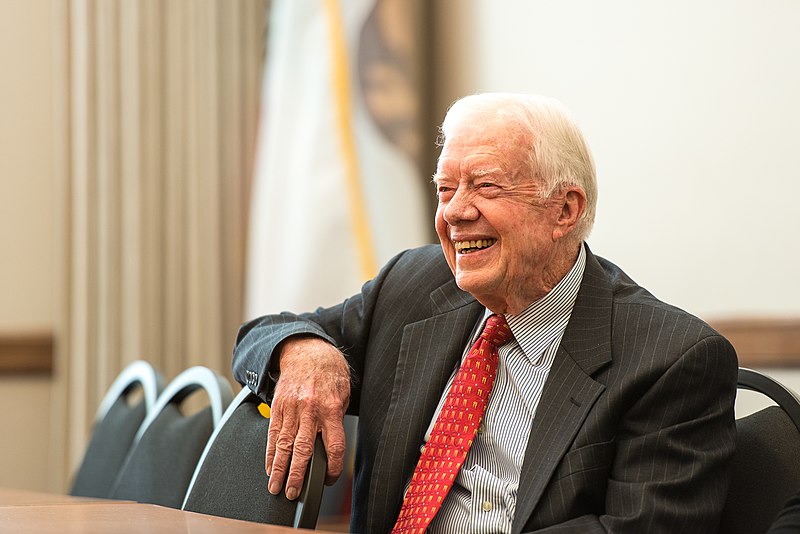Jimmy Carter, the 39th President of the United States, passed away at the age of 100 on Sunday at his home in Plains, Georgia. Carter’s death follows nearly two years after he entered hospice care, having ceased medical treatment for health issues. His son confirmed the news, marking the end of the life of one of the most celebrated figures in modern American history.
Carter’s four years in office were marked by notable challenges, but his legacy extended far beyond the White House. He is best remembered for his post-presidential work, winning the Nobel Peace Prize in 2002 for his tireless efforts in promoting global peace, democracy, and human rights. His commitment to these causes earned him the admiration of people around the world, particularly for his outspoken support for marginalized communities, including Palestinians.
Despite the challenges of his presidency, which saw him criticized by political opponents and struggles with the U.S. economy, Carter remained a staunch advocate for peace. His integrity and dedication to humanitarian work earned him the reputation of being “our greatest ex-president,” according to James Zogby, founder of the Arab American Institute. “He was a peacemaker and a human rights champion,” Zogby remarked, acknowledging Carter’s humility and unwavering moral principles.
Beyond his political career, Carter’s post-presidential endeavors, especially through the Carter Center, focused on issues such as global health, election monitoring, and efforts to eradicate diseases like Guinea worm disease. His contributions to human rights and global peace have cemented his place as one of the most revered figures in modern American history.
Carter’s life and career stand as a testament to the impact of leadership guided by principle and compassion. His legacy will continue to inspire generations to come.
Picture by Commonwealth Club: CCA 2.0 https://commons.wikimedia.org/wiki/File:2013.02.24_RITGER_Jimmy_Carter_007_%288509741941%29.jpg


